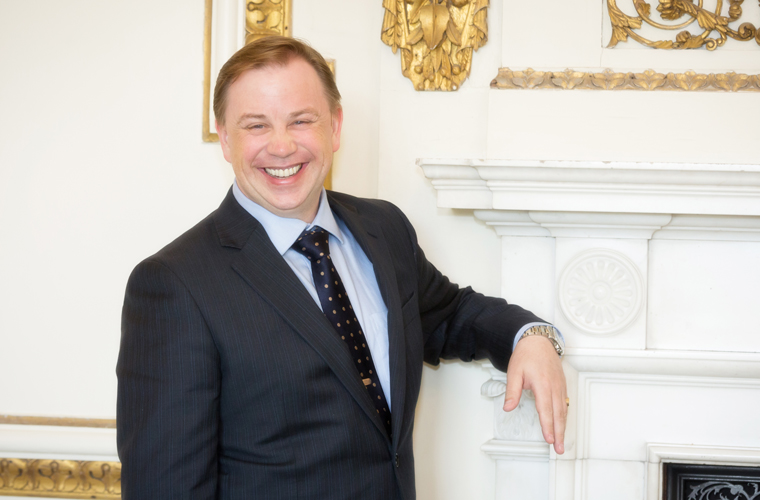Paul Russell is the managing director of luxury training company Luxury Academy.
Who are Luxury Academy?
Luxury Academy provide soft skills training to the luxury market, we are the only specialist training provider for the luxury market and actually it was this lack of specific training that inspired us to set up the company in 2012. As a workplace psychologist, I worked with many luxury brands and was continually frustrated by the lack of luxury training available. Luxury Academy help companies to deliver outstanding customer experience, by ensuring their staff have the requisite skills such as understanding HNW individuals, leadership, communication or customer service.
How is the luxury market performing currently and how have you adapted to market conditions?
The luxury market in the UK is in the maturity stage but luxury is a global $200 billion industry. From an initial UK base which we still maintain, we opened new offices in India to enable us to expand our international training provision. In India, luxury is still very much in its growth stages, similar to Russia and the Middle East, I probably spend about half of my time training outside of the UK now. Luxury has adapted very well to modern market conditions, and it is still in luxury that many trends originate.
What is your involvement with the finance industry?
We work with private banks and their portfolio managers, investment bankers and private client bankers on aspects such as personal branding, presentation skills, sales skills, international business etiquette, client entertaining and communication. Within any luxury business, there are staff members who liaise directly with clients and they have to be able to relate to the client at their level. So with communication for example, we would train staff in voice, pace and tone training. For the client the staff member is, to all intents and purposes, the service. They are the link from client to brand, and that they are able to deliver a service that is luxurious from every angle is paramount to positive customer experience.
How is the concept of customer experience changing?
Customer experience is concerned with every touchpoint from a customer perspective, the initial perusal of a website, a call, the first meeting, the follow up and the relationship thereafter. AI is transforming customer experience to a large extent, because now it is often about speed. But there are certain categories of customer and certain services where AI will never supersede human interaction. Certainly a client would be happy to automate minor elements of their banking for example, but at the higher end, they will always require personalised attention. In any case, it is down to the company to offer the client that choice- of how they interact with their service provider. And when they select the personal route, it needs to be of five star quality.
Why would a finance professional require training in personal branding?
Customers and clients make quick decisions, snap assessments. We all do this to some extent. You are introduced to your new portfolio manager and you form a first impression. Rightly or wrongly, subconsciously or consciously you take in what they are wearing, their manner and deportment, their style and grooming, and you decide whether you trust them to look after your fund. What we teach with personal branding is enabling the staff member to understand just how valuable developing a favourable impression is, and how personal branding is at the heart of this. Companies pour billions into branding and creating that unique brand that resonates in the marketplace. It makes inherent sense for the same attention to be paid to those that are delivering the service, particularly at the top end of the market.
How can communication skills assist finance professionals?
No matter how good you imagine your communication skills are, they can always be refined and improved. For senior finance professionals, it may be that they have to communicate decisions to stakeholders. Client facing staff have to communicate complex information clearly and concisely, and they have to instil confidence through what they say from the very first contact. Many people are astonished by how you can instil confidence and trust through not only what is said, but how it is said, varying tone of voice, pace and tone.
What is business etiquette and how is it relevant in today’s marketplace?
Etiquette is the accepted ways of behaving based on cultural norms, translate this to the business environment and there are even more aspects of etiquette to consider. Much of etiquette will be country specific, but there are also aspects of etiquette that are specific to particular companies, industries and even services. Business etiquette training is a guide to reading situations, interpreting them and knowing how to behave, particularly in an international setting. Consider senior level executives meeting with international clients as an example, what are appropriate greetings, what is the correct etiquette for dining, gift giving, precedence and many other issues. Etiquette is culturally driven, so to expect the customs and norms of one country to apply in a completely separate country would be a mistake. With globalisation, business etiquette has never been more relevant and important to individual and group success.
Luxury Academy
Paul Russell is co-founder and director of Luxury Academy London, www.luxuryacademy.co.uk, a multi-national private training company with offices in London, Delhi, Mumbai and Visakhapatnam. Luxury Academy London specialise in leadership, communication and business etiquette training for companies and private clients across a wide range of sectors. Prior to founding Luxury Academy London, Paul worked in senior leadership roles across Europe, United States, Middle East and Asia. A dynamic trainer and seminar leader, Paul has designed and taught courses, workshops and seminars worldwide on a wide variety of soft skills.


